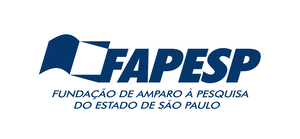Use este identificador para citar ou acessar este item:
https://repositorio.ufscar.br/handle/ufscar/15570| DOI: | https://doi.org/10.1002/oby.23311 |
| Título: | Determinants of endothelial dysfunction in noncritically ill hospitalized COVID-19 patients: a cross-sectional study |
| Assunto: | Covid-19;Endothelial function |
| Descrição: | Objective: The aim of this study was to identify determinants of endothelial dysfunction in patients hospitalized with acute COVID-19. Methods: A total of 109 hospitalized COVID-19 patients in noncritical status were cross-sectionally studied. Clinical data (age, sex, comorbidities, and medications) and BMI were assessed. Laboratory tests included serum hemoglobin, leukocytes, lymphocytes, platelets, C-reactive protein, ferritin, D-dimer, and creatinine. Physical status was evaluated using a handgrip dynamometer. Endothelial function was assessed noninvasively using the flow-mediated dilation (FMD) method. Results: The sample average age was 51 years, 51% of patients were male, and the most frequent comorbidity was obesity (62%). Univariate analysis showed association of lower FMD with higher BMI, hypertension, use of oral antihypertensive, higher blood levels of creatinine, and larger baseline artery diameter. After adjusting for confounders, the multivariate analysis showed BMI (95% CI: −0.26 to −0.11; p < 0.001) as the major factor associated with FMD. Other factors associated with FMD were baseline artery diameter (95% CI: −1.77 to −0.29; p = 0.007) and blood levels of creatinine (95% CI: −1.99 to −0.16; p = 0.022). Conclusions: Increased BMI was the major factor associated with endothelial dysfunction in noncritically hospitalized COVID-19 patients. This may explain one of the pathways in which obesity may increase the risk for severe COVID-19. |
| Autor(es): | Heubel, Alessandro Domingues Viana, Ariane Aparecida Linares, Stephanie Nogueira Amaral, Vanessa Teixeira do Schafauser, Nathany Souza Oliveira, Gustavo Yudi Orikassa de Ramírez, Paula Camila Martinelli, Bruno Alexandre, Tiago da Silva Silva, Audrey Borghi Ciolac, Emmanuel Gomes Mendes, Renata Gonçalves |
| URI: | https://repositorio.ufscar.br/handle/ufscar/15570 |
| Outros identificadores: | https://doi.org/10.1002/oby.23311 |
| Fomento: | Conselho Nacional de Desenvolvimento Científico e Tecnológico (CNPq) Coordenação de Aperfeiçoamento de Pessoal de Nível Superior (CAPES) Fundação de Amparo à Pesquisa do Estado de São Paulo (FAPESP) |
| Número do Projeto: | Código de Financiamento 001 - CAPES Processo nº 2015/09259‐2, Fundação de Amparo à Pesquisa do Estado de São Paulo (FAPESP) Processo nº 2015/26501‐1, Fundação de Amparo à Pesquisa do Estado de São Paulo (FAPESP) Processo nº 303399/2018‐0 - Conselho Nacional de Desenvolvimento Científico e Tecnológico (CNPq) |
| Termo de uso: | Attribution-NonCommercial-NoDerivs 3.0 Brazil |
| Data: | |
| Data de Disponibilização: | 9-Fev-2022 |
| Formato: | |
| Tipo: | Dataset |
| Editora / Evento / Instituição: | Universidade Federal de São Carlos |
| Idioma : | |
| Aparece nas coleções: | Repositório dados - UFSCar |
Este item está licenciada sob uma Licença Creative Commons

